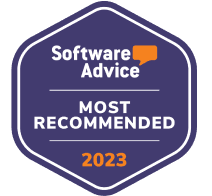How to Evaluate a Tech Vendor (Even if You’re Not a Tech Expert)
Tuesday, June 10, 2025

Choosing a new tech vendor can feel a lot like speed dating — you're under pressure to make a smart decision quickly, but you're not sure who to trust, what to ask, or how to tell a solid partner from a risky one. For nonprofit leaders and small business owners, the stakes are even higher: the wrong tool can waste precious budget, expose your data, or create security gaps you can’t afford.
Here’s the good news: you don’t have to be a cybersecurity expert to evaluate your vendors like one. With the right framework, a few key questions, and a little help from tools like Lockwell, you can confidently assess whether a vendor is a safe and strategic fit.
Why Tech Vendor Evaluation Matters (More Than Ever)
Every third-party tool you use — whether it’s your CRM, accounting software, email platform, or donor management system — is an extension of your security perimeter. If that vendor gets breached, your data might be on the line too.
That’s why more grant funders, insurance providers, and enterprise clients are asking about third-party risk management. And that’s also why Lockwell includes Vendor Management in every subscription — to help small teams like yours stay on top of vendor risks automatically.
Step-by-Step: How to Vet a Vendor (No Jargon Required)
1. Ask About Their Security Practices
A reputable vendor should be able to answer basic security questions like:
Do you encrypt customer data?
Do you support two-factor authentication?
How do you handle incidents or breaches?
If the answers are vague or non-committal, that’s a red flag. Bonus points if they proactively mention frameworks like SOC 2, ISO 27001, or NIST compliance.
Tip: If you’re using Lockwell, Elle can track this info for you and remind you when it’s time to re-check or collect new documentation.
2. Check for Data Ownership and Exit Clauses
Always understand:
Who owns the data?
What happens if you leave the platform?
Will they help you export your data (and is it readable outside their tool)?
This ensures you stay in control — and don’t get locked into a service that holds your data hostage.
3. Request (or Review) Security Documentation
If you're not sure what to ask for, start with:
A copy of their data protection policy
Any recent penetration test results
A security questionnaire (many vendors have one prepared for clients)
Even just seeing that they have documentation prepared shows maturity.
4. Look for a Breach Response Plan
Mistakes happen — the real test is how a vendor responds. Ask:
Do you notify customers of breaches?
How soon after an incident will we be informed?
Do you have a point of contact for urgent security issues?
If they seem cagey or dismissive, they may not be prepared.
5. Use Lockwell to Automate the Risk Tracking
With Lockwell’s Vendor Management dashboard, you can:
Store and organize security documents by vendor
Get reminders when certifications expire
Flag vendors with risky access or missing compliance
This takes the guesswork out of the process — and gives you a clear record if anyone asks how you're managing third-party risk.
Conclusion: You’ve Got This (Really)
Evaluating vendors might feel intimidating at first, but it doesn’t have to be. By asking a few key questions and using the right tools, you can protect your organization from third-party risk — no security degree required.
And remember, Lockwell is built to make all of this easier. From vendor tracking to breach alerts to compliance reports, we’ve got your back.













